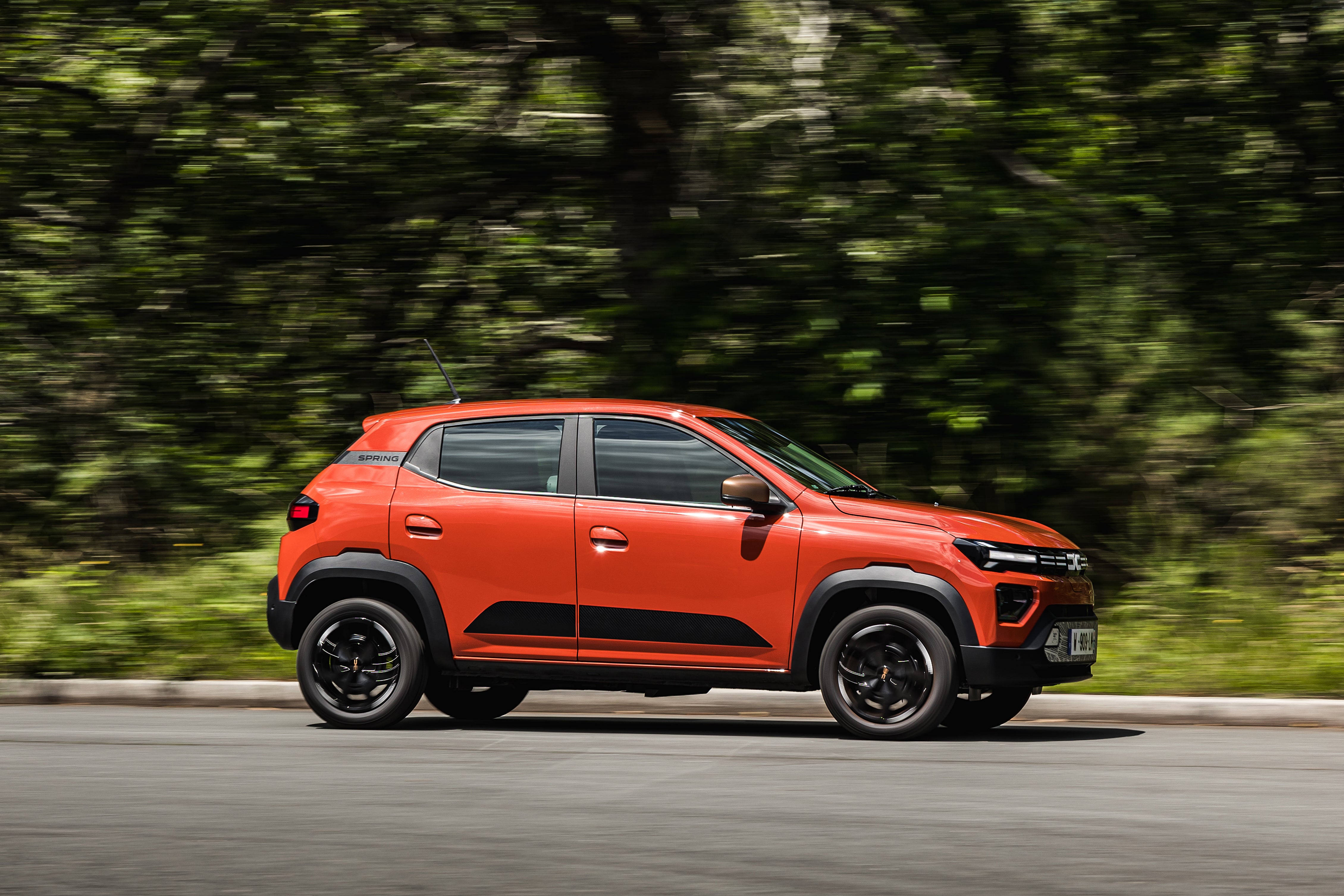Transport secretary Heidi Alexander has announced a new £650m Electric Car Grant (ECG) to help reduce the cost of EVs, with up to £3,750 available on some cars under £37,000.
The new grant comes into effect on Wednesday 16 July, with the government promising a fuss-free scheme for buyers with car makers and their dealers made to do the paperwork. However, with just 24 hours before the scheme goes live, details on which cars get what discounts are yet to be announced.
The grant amounts are based on sustainability criteria with car makers having to commit to a Science-Based Target (SBT) on emissions. An SBT is a company’s specific goal to cut greenhouse gas emissions in line with the aim to limit global warming to 1.5C or below 2C, as outlined in the Paris Agreement on climate change.
The grant amounts will depend on each vehicle manufacturer’s sustainability criteria. Cars from manufacturers in band one will receive up to £3,750 and band two vehicles will receive up to £1,500. Despite the grant coming into effect on July 16, car makers still don’t know which bands their cars sit in and what grants will be offered on them.
Volkswagen group – the UK’s biggest seller of new cars across its Volkswagen, Audi, Skoda, Seat and Cupra brands – confirmed that it is signed up to Science-Based Targets, but could not confirm which of the electric vehicles it sells would be eligible for which grants.
Similarly, Renault Group – covering Renault, Dacia and Alpine – is also signed up to SBTs but could not confirm which EVs it sells were eligible for which grants. Ford has also said that it has an SBT and that it meets all the requirements stated so far. However, like everyone else, it was waiting on confirmation that its Puma Gen-E – an electric version of the UK’s best-selling car – is eligible for the ECG.

So far, the government has told us that the following rules will apply:
- Manufacturers will need to demonstrate a vehicle meets minimum technical requirements and offers a suitable warranty to give drivers confidence.
- Manufacturers will have to submit details about the manufacturing of their vehicles, which will be used to assess sustainability of manufacturing and therefore the grant amount.
- To qualify for any level of the grant, a manufacturer has to have a net zero target.
- If they do, whether and how much funding a vehicle receives is based on the carbon emissions of the electricity grid in the country or countries of key production stages.
- The final environmental score assigned to each vehicle model reflects two stages of vehicle production: vehicle assembly – defined as the point at which the powertrain is attached to the chassis – and battery production, defined as the location where active electrode materials are encased together.
- To create the final score, a weighting of 70 per cent is applied to the assessment of CO2 from battery production and 30% is applied to the assessment of vehicle assembly emissions.
- The cleanest vehicles will receive the top grant of £3,750, the next most clean £1,500, and vehicles that don’t meet a minimum level will not receive a grant.
The government is set to update information on the grants available to specific vehicles on its website over the coming weeks, with eligible car makers able to apply for funding from Wednesday 16 July – on a first come, first served basis. However, it’s not yet known how long it will take for applications to be approved, while a digital system for manufacturers to log eligible vehicle sales won’t be open until 11 August. Grants may be available before that date for vehicles that have been approved, though.
Anyone who has bought an EV before the grants are approved will not be eligible for the grant to be issued retrospectively, while there is a concern that the EV market stalls while buyers wait to find out what grants will be issued to EVs with list prices under the £37,000 threshold.
Announcing the new Electric Car Grant, Transport Secretary Heidi Alexander said: “This EV grant will not only allow people to keep more of their hard-earned money – it’ll help our automotive sector seize one of the biggest opportunities of the 21st century. And with over 82,000 public chargepoints now available across the UK, we’ve built the infrastructure families need to make the switch with confidence.
“This is our Plan for Change in action. We’re backing British drivers, British jobs and British growth.”
Automotive industry spokesperson, Mike Hawes, chief executive of the Society of Motor Manufacturers and Traders (SMMT) said, “Today’s announcement of the return of government support for the purchase of electric vehicles is a clear signal to consumers that now is the time to switch. Rapid deployment and availability of this grant over the next few years will help provide the momentum that is essential to take the EV market from just one in four today, to four in five by the end of the decade.
“This announcement is a welcome response to consistent calls from the industry for more support, which will be in addition to the substantive subsidies already provided by manufacturers. Taken with recent announcements regarding infrastructure investments and the Industrial Strategy, the UK has the opportunity to maintain its position as a leader in both the manufacture and sale of zero emission vehicles.”
However, Toby Poston, chief executive of the British Vehicle Rental and Leasing Association (BVRLA) has warned of further pressure on the used electric car market and the potential for higher finance costs for new EVs due to faster depreciation of models from new.
“Bit by bit the government is chipping away at the barriers to EV adoption. Targeted incentives have powered the transition to date and now the government is acting to widen the demand base for new electric cars by providing this grant. This generous grant will boost uptake in the retail market but could have serious repercussions for the used market, where rampant depreciation already has red warning lights flashing.
“Further stimulating new EV registrations without supporting the used market risks creating an even greater supply/demand imbalance, putting even more pressure on fast deflating second-hand values. The resulting losses will erode confidence and result in higher finance costs for new EVs, eliminating much of the benefit from the original grant.”
The ECG announcement comes in the week that government has also announced a £25m scheme for local authorities to introduce cross-pavement technology to allow EV charging cables to run safely beneath pavements to help EV owners who don’t have off-street parking.
An £8m fund has also been made available to electrify ambulance and medical fleets across 200 NHS sites.
The government has committed to updating EV charging signs on major roads. For the first time, EV charging hubs – which have more than doubled since early 2023 – can now be signposted from motorways and main A-roads.



.jpeg?trim=335,0,1,0&width=1200&height=800&crop=1200:800)
